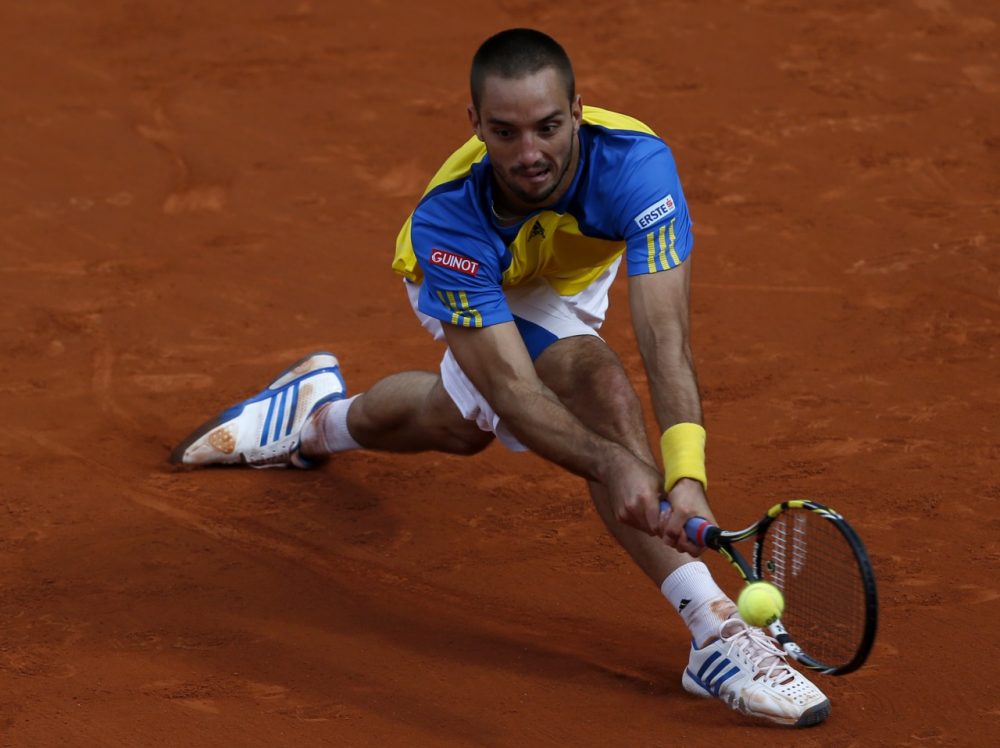Advertisement
ITF's Anti-Doping Program Faces Criticism

The 2014 pro tennis season is underway and the International Tennis Federation is dealing with controversy and criticism of its anti-doping program. Christopher Clarey of the New York Times joins Bill Littlefield to discuss the program and its history.
BL: In the past the anti-doping program overseen by the ITF has been criticized as insufficiently tough. What was the basis of that criticism?
CC: I think there've been a number of things over the years, Bill. Tennis was very early to the anti-doping fight. They had a program before a lot of other sports. But over time the number of tests they are doing, the number of blood tests, out of competition tests, were not judged sufficient by some outside observers, and also I feel like the top players themselves were clamoring for it, which I feel is never a good sign.
People like [Roger] Federer and Andy Murray were calling for more tests in recent years saying they didn't feel they were being tested enough. [Rafael] Nadal's been under some criticism as well because of his style of play and his success. There's been a lot of doubts, but I think he wants that addressed. He wants to clear his name and any issues there might be. So the players want that stain, whatever that might be, to be taken away, and I really think there's been a clear attempt on their part to call for more.
BL: The Court of Arbitration for Sport has recently reduced the penalties for two tennis players. Tell us a little bit about those cases and whether the reductions have altered the way the ITF will operate going forward.
CC: Well, there were two prominent players who were caught up in doping cases last year: Viktor Troicki, former top-20 player from Serbia, and Marin Cilic, a player from Croatia. The Troicki case is probably the most interesting because he didn't actually fail a test. He was penalized for declining a blood test. The reasons he gave were he wasn't feeling well that day, and he gave the impression he had been given permission to do that and wait to the next day, which anyone who follows doping closely will know that is not the way it usually works. [It] created quite a firestorm. He was banned initially for a couple of years. It was reduced to 18 months and then ultimately the arbitration court reduced it to one year.
And Cilic's test for a stimulant also was reduced. And so it's kind of given the impression that the ITF and the doping part of tennis was going a bit overboard to try to set an example and push hard on these cases. But the ITF has responded by trying to get rid of some of the ambiguity that created that case with Troicki. It's a case where they've kind of gotten the balance wrong. They're trying to address that and fix it.
Advertisement
BL: Two of the top men in the game see the anti-doping program differently. Novak Djokovic has said of the testers, "I don't trust them," perhaps because he and Viktor Troicki are friends. Roger Federer has defended the program as you mentioned. Where do most of the less spectacularly successful players fall on that spectrum?
CC: I think everybody — with the Lance Armstrong era, and with men's tennis being as physical as it is — wants to see more severe and strict testing. I feel like there's really a sense among all the players that they need to do more. The other problem they have is they don't declare after an initial positive test that this has happened, which creates some doubt in terms of players who take long breaks from the sport--whether they're absent because of injury, whether they're absent because there'll be tribunals or positive doping tests they'll try and contest--so that's created this gray area which other sports also have, but some have gotten rid of that aspect of it.
BL: Athletes in different sports use different PED's for different purposes, of course. Can you draw any conclusions about how the tennis establishment handles doping compared to how it's handled by Major League Baseball or the NFL for example?
CC: I think the perception was for a long time that tennis was not a sport that was really conducive to doping because it was a skill sport. Some of the sports leaders have given that impression as well. I think that's really wrong. A lot of the things you can say about baseball you can say about tennis. True, baseball's a great skill sport: batting, pitching, fielding, all those are great skills you acquire. But it's obviously clear from history that doping is a big part of baseball, and there's no reason to think that there wasn't temptation in tennis to do the same.
So I think tennis needs to be even more aggressive. It needs to devote more money and resources to the issue and to be more public and open about it in terms of how they tackle it. And the top players, really, should not be clamoring for more testing in your sport.
This segment aired on January 18, 2014.